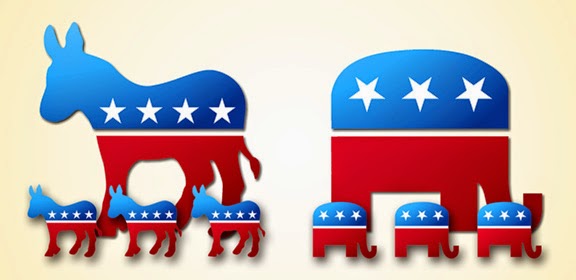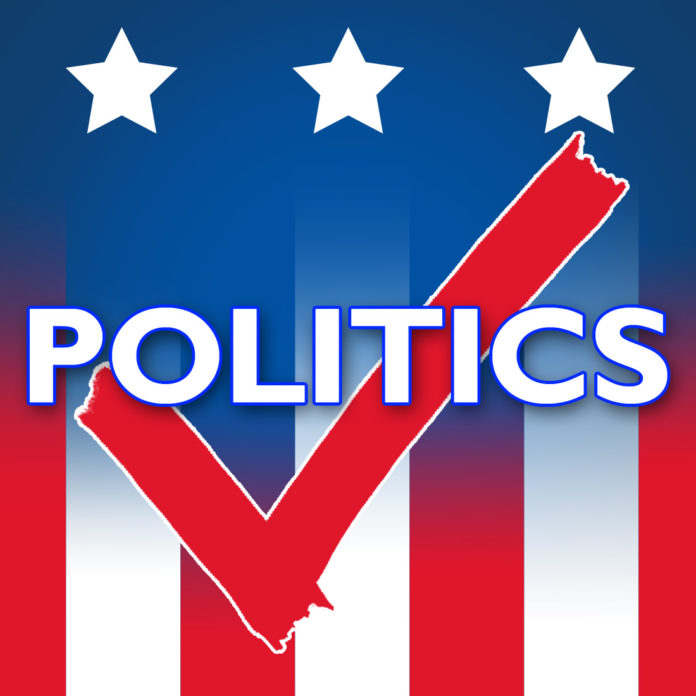Tim Allen recently tweeted the dictionary definition of the word ‘socialism,’ and got a lot of flack for ‘not getting it’ by those who call themselves Democratic Socialists, as well as by those on the left who believe in Social Democracy.
Merriam-Webster defines socialism as follows (this is the definition Tim Allen tweeted):
1: any of various economic and political theories advocating collective or governmental ownership and administration of the means of production and distribution of goods.
2: a system of society or group living in which there is no private property.
This is a good definition as it separates ownership of the means of production, from administration of the means of production, allowing us to separate socialism from fascism – which involves private ownership of the means or production, with government administration. Economic fascism is what Elizabeth Warren and Hillary Clinton promote.
Democratic Socialism is a philosophy advocating for democratic political mechanisms within a socialist state. Most Democratic Socialists advocate a gradual transition to socialism, but government ownership and administration of the means of production, within a democratic political system, is their end goal. Democratic Socialists are a subset of the definition of ‘socialism,’ but they are socialists in every sense of the word, believing that free markets are incompatible with freedom, equality, and solidarity.
Social Democracy is an offshoot of free market capitalism that blends three things: 1) a democratic political system, 2) a free market economy, and 3) a welfare state. Ironically, the most successful Social Democracies recognize that production and income both follow a Pareto Distribution, so they use regressive tax rates to pay for their welfare systems – something America’s Democrats will never advocate…
‘Social Democracy’ is also a phrase used to refer to a gradual socialist takeover of a free market state, using word games to hide the true intent of its advocates. Using this definition, Social Democracy and Democratic Socialism become the same thing, so I am going to ignore that definition and focus on Social Democracy as a welfare state within a Free Market.
Traditional Democrats and Republicans both fit under the broad term of ‘social democrats,’ though they vary widely in terms of what they think a welfare system should look like, and how generous it should be. Traditional Democrats and Republicans also differ a great deal on how they want our ‘democracy’ to operate. Republicans point to our Constitution as proof that we are not, strictly speaking, a ‘democracy’ at all, but are a Republic that uses democratic means to elect members of a representative government. Democrats prefer to weaken Constitutional limits on government power such that we can operate more like a direct democracy.
Traditional Republicans look at the 10th Amendment as proof that the Federal Government is supposed to have a very limited role. Traditional Democrats look at the use of the phrase, ‘General Welfare,’ and the ‘Interstate Commerce clause,’ and say that this gives the Federal Government the power to do pretty much anything the Constitution and Bill or Rights do not specifically forbid.
Based on these differences, traditional Democrats have generally be in favor of an expanded welfare state at the Federal level, whereas traditional Republicans have been in favor of more limited welfare programs, and want those programs run at the state or local level. Traditional Democrats also want welfare to largely replace charitable giving, whereas traditional Republicans want state and local welfare programs to augment, and run alongside of, private charities.
Traditional Democrats and Republicans also differ a great deal on how they want the Constitution interpreted, with Republicans looking for strict interpretations, based on the clear language of the Constitution, using the meanings of words and phrases that were common at the time they were written; and Democrats wanting a ‘living document’ interpretation of the Constitution, in which the Constitution is ‘interpreted’ not based on what it says, so much as on whatever society might need it to say at any given point in time. One might say that Democrats want the Constitution to define the mechanisms of Government, but that Democrats want common-law to determine the powers and scope of government.
The modern Republican Party has largely split, with many Republican officials acting more like traditional Democrats than traditional Republicans. These Republicans talk about originalist intent and free market dynamics, but only until a discussion gets specific. These Republicans want to cut entitlements, but only until someone suggests cutting a specific entitlement. These Republicans want to use Free Markets, but only until someone mentions a specific market (such as medical care). Once a discussion gets specific, these Republicans want to at least maintain (if not grow) as much government largess as possible.
The other part of the Republican Party still holds traditional Republican values, calling for a very limited federal government, defined by an originalist interpretation of the US Constitution. These Republicans often call the other Republicans ‘RINOs’, for ‘Republicans in Name Only.’

The modern Democratic Party tends to vote in lock-step against Republicans, but they are somewhat diverse. The modern heart of the party is split between economic fascism (Hillary Clinton and Elizabeth Warren), and economic socialism (Bernie Sanders and Alexandria Ocasio-Cortez). True Social Democrats within the Democratic Party still tend to vote Democrat, but I often wonder how many of them realize that the modern Democratic Party wants to end free market capitalism entirely. The modern Democratic Party wants a generous welfare state (as do Social Democrats), but they also want state administration over the means of production (‘Accountable Capitalism,’ as Elizabeth Warren puts it), and in some cases (such as with Bernie Sanders and Alexandria Ocasio-Cortez), they want state ownership – starting with healthcare and energy before expanding further.
The modern Republican Party does not vote in lock-step, which is why it failed to repeal Obamacare. There are a number of factions within the Republican Party, including Neocons, Christian Conservatives, libertarians (lower case ‘L’), and Constitutional Conservatives. To muddy the waters further, many Christian Conservatives are neither libertarian, nor strict Constitutionalists, whereas many of the Republicans who are not Christian Conservatives, are not Christians at all. One might split the Republican Party between those who want to preserve what they view as traditional American culture (including religion), and those who want to preserve traditional American freedoms. Obviously, there are many Republicans who want to preserve both.
There is another sphere entirely upon which American political factions exist, and that is the phenomenon known as the ‘cult of personality’. ‘Cult of personality’ voters are those who follow people more than policies, and attack or defend people based on who they support, independent of policy. Democrats tend to lump all Republicans into this kind of thing, under phrases like, ‘Trumpsters,’ but while I know some people who really do fit that label, most Republicans are happy to disagree with Trump whenever they do not like something Trump says or does.
Democrats seem to get stuck into the ‘cult of personality’ thing too, but in a different way. In my lifetime, I grew up hearing about how Ronald Reagan was the worst President in our nation’s history. Years later, I kept hearing how George W. Bush was the worst President ever. Today, I keep hearing that Donald Trump is the worst President ever. Democrats seem to hate every Republican President with a vitriol that can only be described as a ‘cult of personality’ against those Presidents.
Republicans, being in favor of an originalist interpretation of the Constitution, also tend to be in favor of mutually agreed upon definitions. Democrats like to ignore definitions – using connotation as a political weapon, quite independently of what words actually mean. We all agree that ‘fascism’ is bad, so Democrats both run on actual fascist platforms (Elizabeth Warren) and then call Trump – who is not a fascist by any stretch of the imagination – ‘fascist’ at ever turn. Everyone agrees that the word ‘racism’ is evil, so Democrats practice actual racism while calling Republicans ‘racist’ whenever disagreements exist. I like to call this a ‘War on Words.’
In addition to all of these different factions within the two major parties, there are also a number of other parties, such as the Libertarian Party, the Green Party, the Democratic Socialist Party, and the Constitution Party, just to name a few. These parties are very small when compared to the two major parties, but by peeling off votes that would otherwise go to one of the major parties, they can still throw elections.

























